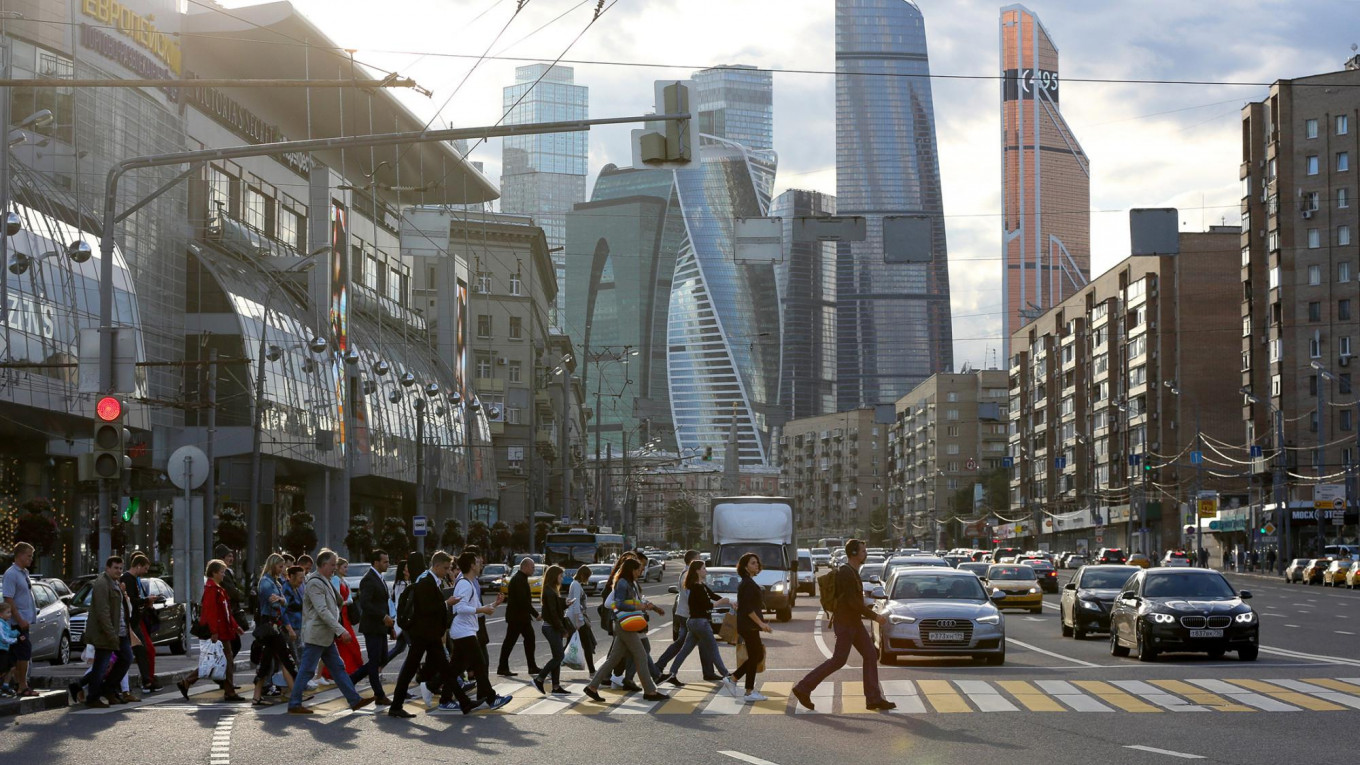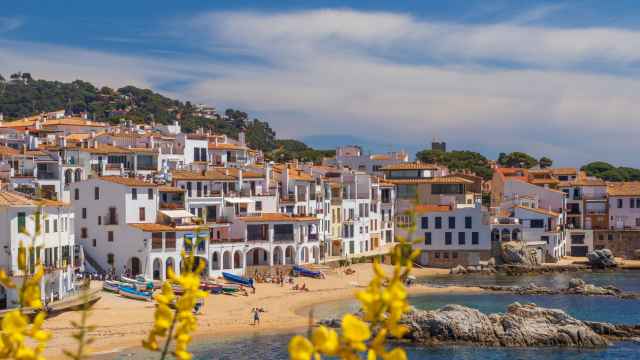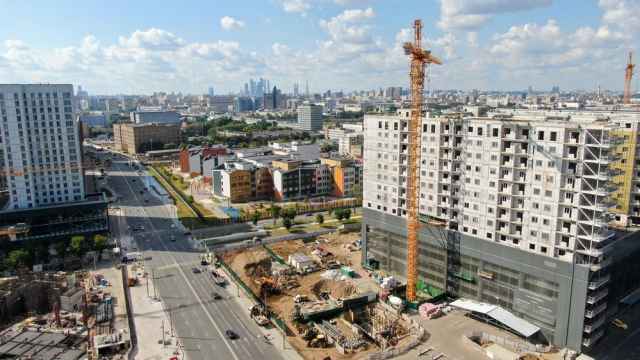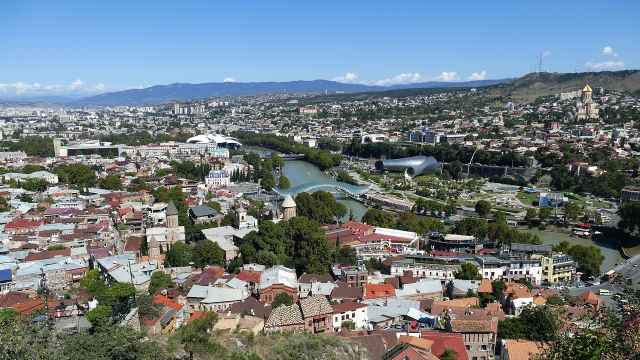Russia built it, but they didn’t come.
Two decades in the making, Moscow City is finally filling up with tenants, just not necessarily the kind Russia had in mind when it conceived the glass-and-steel district as an international financial hub.
With the economy besieged by sanctions and some of its biggest companies becoming pariahs in western capital markets, Russia is cramming the high-rises with ministries and the biggest state firms. Now, the central bank is also discussing a possible relocation of some employees, according to two people familiar with the matter.
“What’s happening in City reflects the trend in the economy,” said Valery Vaisberg, head of research at IK Region, an investment company in Moscow that manages 346 billion rubles ($5.9 billion) in assets. “Many of the towers ended up with state banks because other tenants can’t afford such prices.”
Already home to two of the top state lenders, the sprawling development in western Moscow will soon be host to oil pipeline monopoly Transneft PJSC, with the ministries of economy, communications and industry aiming to relocate there next year. Sberbank PJSC, the biggest bank, is in a tower less than a mile away.
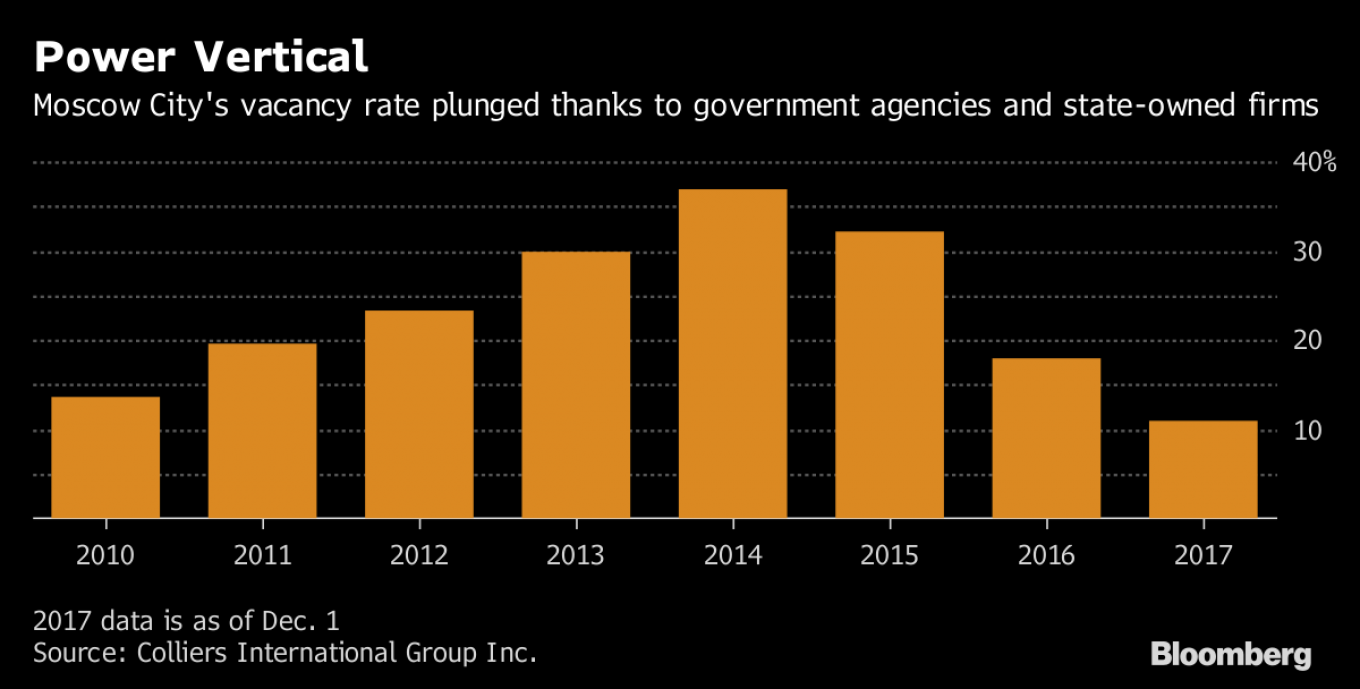
The Bank of Russia may soon be VTB Group’s neighbor in one of Europe’s tallest skyscrapers, although no decision has yet been made, according to the people, who asked not to be named because the matter isn’t public. The central bank isn’t planning to abandon its headquarters in a 19th-century mansion in central Moscow, they said. Moscow’s government has also bought a half of another tower.
The central bank’s press service didn’t confirm or deny plans for moving some personnel to the financial district, saying in response to a request for comment that it’s looking for ways to house its Moscow staff of more than 10,000 more efficiently.
Fortunes Reverse
It’s a reversal from Moscow City’s early days, when the likes of International Business Machines Corp. and KPMG LLP snapped up the premises, with the share of foreign businesses peaking at 80 percent in 2006. More than a decade later, Russian companies account for 71 percent of the total space, according to Colliers International. The government and state-run firms make up a third.
The takeover began after the global credit squeeze almost a decade ago, when the failure of developers gave their creditors among state banks ownership of properties in the district. When Russia plunged into recession in 2015, and demand for new offices collapsed, lenders opted to use the space for their own needs, according to Alexander Bazhenov, an office-market analyst at Jones Lang LaSalle Inc. in Moscow. In 2015, vacancies in Moscow City reached 40 percent, he said.
“Against that backdrop, financial institutions began to consider putting their own offices in buildings they wound up owning,” he said.
State Ascendant
The transformation mirrors a shift in the Russian economy that accelerated in recent years but started years ago under President Vladimir Putin. Instead of offering Russia’s answer to London’s Canary Wharf, the new skyscraper city is becoming a monument to top-down state capitalism. In the decade after 2005, the state’s share in the economy doubled to 70 percent of gross domestic product, according to Russia’s anti-monopoly service.
The state takeover only intensified since a standoff with the West escalated in 2014 and the crash in oil prices gutted the economy. As talk of reform remained muted, almost two years of recession left Russia with little to fall back on. That’s allowed the government to muscle in.
For Moscow City, the arrival of state tenants was a matter of survival after occupancy rates tanked at the height of the economic crisis. Now, Colliers says properties are in demand even before the end of construction, and vacancies are at less than a fifth, down from almost half just a few years ago.
The district, which combines offices with commercial and residential space, hasn’t entirely become a colony of the state. Russia’s largest miner MMC Norilsk Nickel PJSC and billionaire Arkady Rotenberg’s Stroygazmontazh are moving in. Western companies are also present, albeit in small numbers.
“The state’s growing presence in the economy is playing out in City,” said Natalia Orlova, chief economist at Alfa-Bank in Moscow. The effect “isn’t only direct but is also implemented via companies in segments where 10 years ago there was no plan to raise the state’s role.”
A Message from The Moscow Times:
Dear readers,
We are facing unprecedented challenges. Russia's Prosecutor General's Office has designated The Moscow Times as an "undesirable" organization, criminalizing our work and putting our staff at risk of prosecution. This follows our earlier unjust labeling as a "foreign agent."
These actions are direct attempts to silence independent journalism in Russia. The authorities claim our work "discredits the decisions of the Russian leadership." We see things differently: we strive to provide accurate, unbiased reporting on Russia.
We, the journalists of The Moscow Times, refuse to be silenced. But to continue our work, we need your help.
Your support, no matter how small, makes a world of difference. If you can, please support us monthly starting from just $2. It's quick to set up, and every contribution makes a significant impact.
By supporting The Moscow Times, you're defending open, independent journalism in the face of repression. Thank you for standing with us.
Remind me later.


